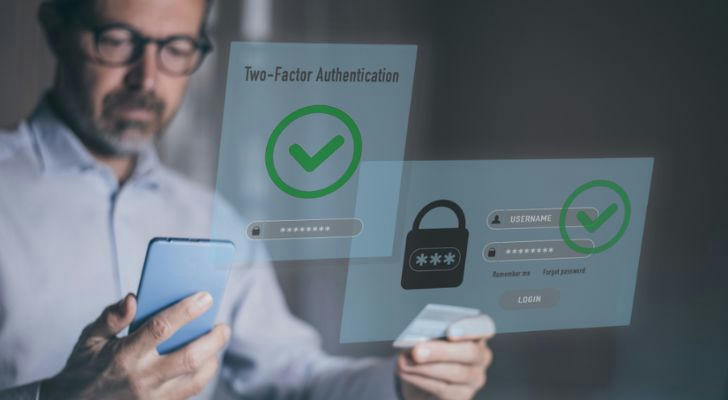Avoiding Scams: How to Protect Yourself from Fraud in the Digital Age

The internet has made life more convenient, but it has also given scammers new ways to deceive people. Fraud schemes have become more sophisticated, targeting individuals of all ages, especially older adults. According to the Federal Trade Commission (FTC), Americans lost over $8.8 billion to fraud in 2022 alone, a 30% increase from the previous year. Understanding the most common scams and knowing how to stay protected can help prevent financial loss and identity theft.
1. Recognizing Common Scams 🔍
Scammers use various tactics to steal money and personal information. Being aware of these tricks is the first step to avoiding them.
A. Phishing Emails and Texts 📧📱
Phishing scams involve fake emails or messages that appear to come from legitimate companies like banks or government agencies. These messages often:

Urge immediate action (e.g., "Your account has been compromised!")
Contain suspicious links that steal login credentials
Ask for personal information such as Social Security numbers
How to Stay Safe:
Never click on links in unsolicited emails or texts.
Verify messages by contacting the company directly using official contact details.
Use email filters to detect and block phishing attempts.
B. Fake Tech Support Calls ☎️
Scammers posing as tech support agents call and claim that a computer has a virus. They may ask for remote access or demand payment for useless software.

How to Stay Safe:
Legitimate companies do not call out of the blue about computer issues.
Never give remote access to an unknown person.
If unsure, take the computer to a trusted local technician.
C. Romance Scams ❤️💸
Fraudsters create fake online dating profiles to build emotional relationships with victims before asking for money.

How to Stay Safe:
Be cautious of people who avoid video calls or in-person meetings.
Never send money or share financial details with someone not met in person.
Look for inconsistencies in stories and verify profile details.
2. The Psychology Behind Scams 🧠
Scammers exploit emotions to trick victims. They use fear, urgency, and trust to manipulate people into making rash decisions.
Fear: Threatening arrest or fines for unpaid taxes (IRS scams)
Urgency: Claiming an account will be closed if action isn’t taken immediately
Trust: Impersonating relatives or well-known companies
How to Stay Safe:
Pause before responding to urgent requests.
Verify information independently before taking action.
Discuss suspicious messages or calls with a trusted friend or family member.
3. Protecting Personal and Financial Information 🛡️
Taking proactive steps can help safeguard sensitive information and prevent unauthorized access to accounts.
A. Strong Passwords and Two-Factor Authentication 🔑
Weak passwords are a major security risk. According to cybersecurity experts, 81% of hacking-related breaches are due to compromised passwords.

How to Stay Safe:
Use unique, complex passwords for each account.
Enable two-factor authentication (2FA) for an added security layer.
Consider a password manager for secure storage.
B. Secure Online Transactions 💳
Online shopping scams are increasing, with fake websites and fraudulent sellers tricking consumers.
How to Stay Safe:
Shop only on reputable websites with "https" in the URL.
Avoid deals that seem too good to be true.
Use credit cards instead of debit cards for better fraud protection.
C. Monitoring Bank Statements and Credit Reports 📊
Regularly reviewing financial statements can help detect unauthorized transactions early.

How to Stay Safe:
Check bank statements and credit card activity frequently.
Set up alerts for unusual transactions.
Obtain a credit report annually to check for unauthorized accounts.
4. Avoiding Scams in Daily Life 🚫
Scammers don’t just operate online; they also use phone calls, mail, and in-person interactions to deceive people.
A. Recognizing Imposter Scams 🎭
Fraudsters often pretend to be government officials, police officers, or family members in distress.
How to Stay Safe:
Government agencies do not demand payments via gift cards or wire transfers.
Verify calls from "family members" by contacting them directly.
Hang up on suspicious callers and report them.
B. Spotting Fake Charities 🤲
Scammers exploit disasters and tragedies to solicit fake donations.
How to Stay Safe:
Donate only through verified nonprofit organizations.
Check websites like Charity Navigator to confirm legitimacy.
Avoid donating over the phone to unsolicited callers.
5. What to Do If Targeted by a Scam 🛑
Even with precautions, scams can happen. Quick action can minimize damage.
Steps to Take:
Report the Scam: Contact the FTC (ReportFraud.ftc.gov) or local authorities.
Freeze Credit: If personal data is compromised, request a credit freeze to prevent fraudsters from opening accounts.
Contact Banks: Notify financial institutions of any unauthorized transactions.
Warn Others: Sharing experiences can help prevent scams from spreading.
Final Thoughts 🎯
Scammers continuously adapt their tactics, making awareness and vigilance essential. By staying informed, recognizing red flags, and taking proactive security measures, avoiding scams becomes easier. Technology offers many conveniences, but caution is key to staying safe in the digital world. Taking the right precautions today ensures greater security and peace of mind in the future.
